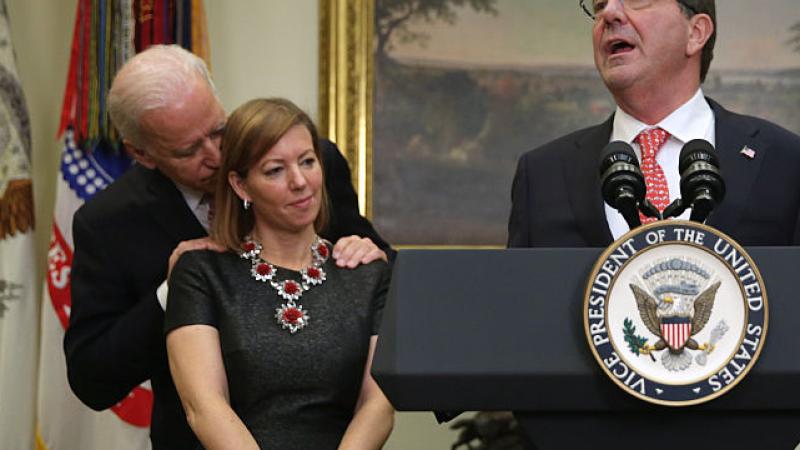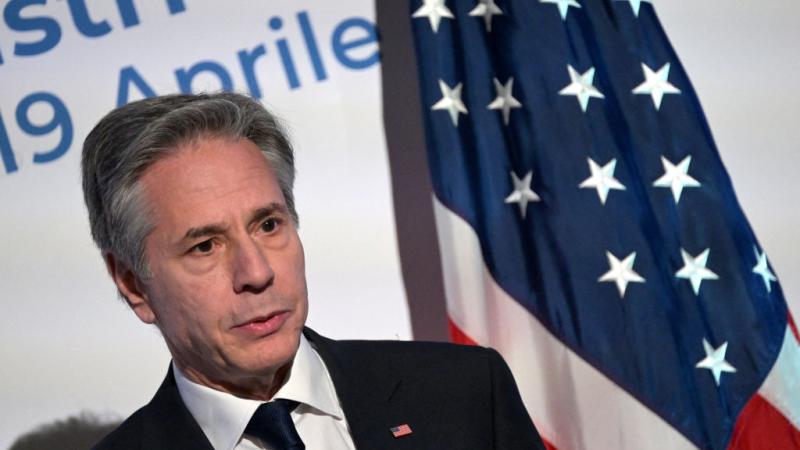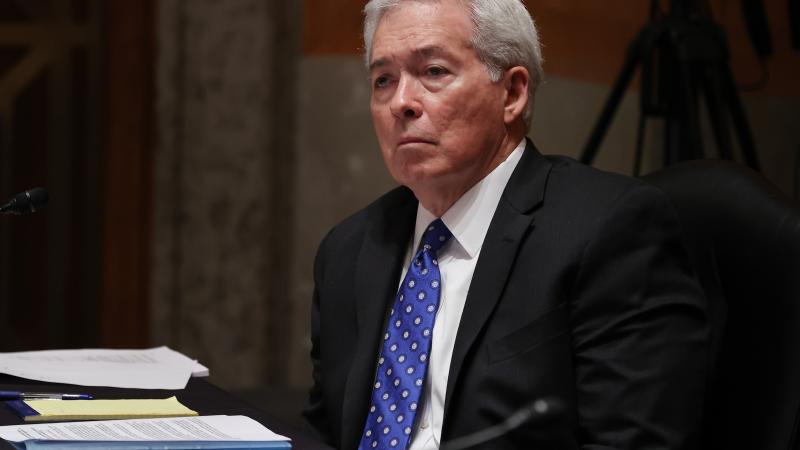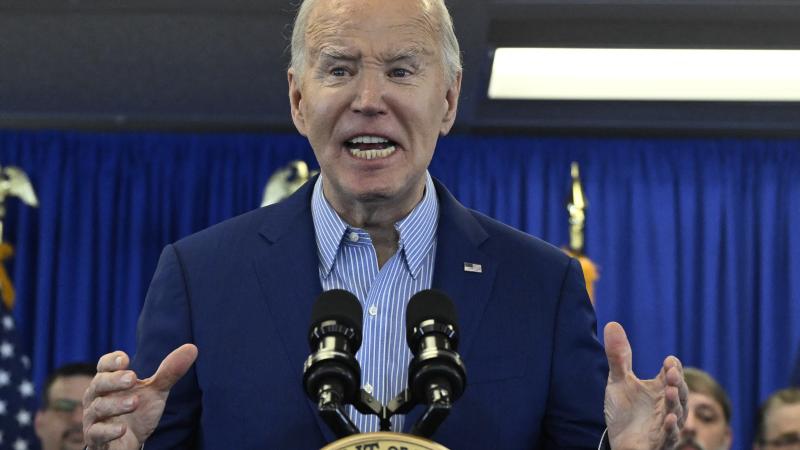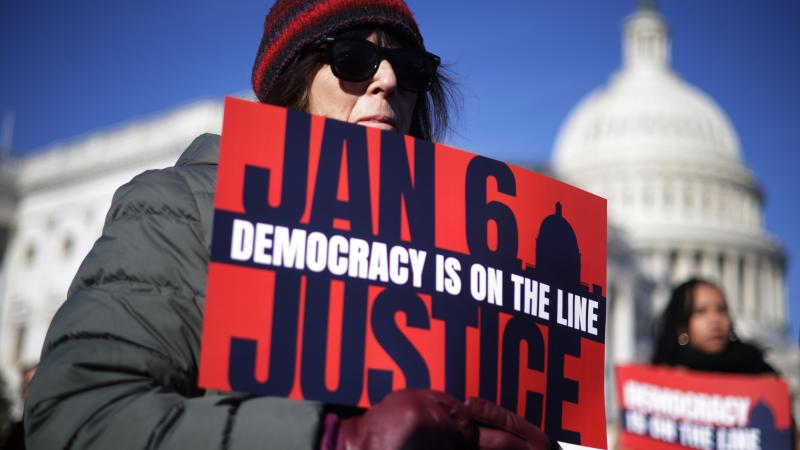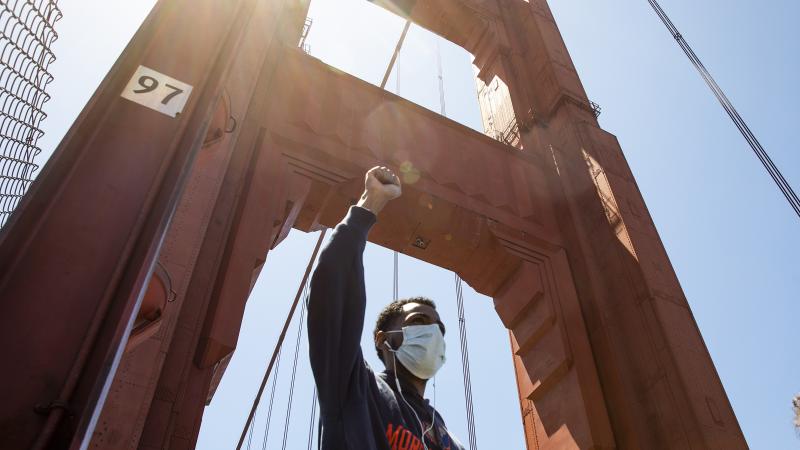Doctors question kids' vax as U.K. research shows minuscule COVID risk
Study led by British Medical Journal editor finds large "absolute risk increase" for "serious adverse events" - and small decrease for COVID hospitalization - following mRNA vaccination for kids. COVID death rate for under-20 is same as flying from London to NYC.
The quality of evidence for the FDA's emergency use authorization (EUA) of COVID-19 vaccines for children as young as 6 months is drawing scrutiny from high-profile doctors and academics, some of whom are asking the White House not to pressure parents to vaccinate.
With CDC seroprevalence data from February finding 75% of minors had natural immunity, more attention is going to the risk/benefit calculation of vaccines for the age group at lowest risk from COVID.
Parents on the fence may find their hesitancy reaffirmed by new studies, not yet peer-reviewed, on the COVID infection fatality rate (IFR) by age and underlying health conditions and "serious adverse events of interest" following mRNA vaccination.
"If someone says vaccines for kids < 5 lower the risk of severe disease or death, it's important to remember that no data on earth proves that conclusion," University of California San Francisco epidemiologist and clinical trial specialist Vinay Prasad tweeted.
He analyzed the evidence considered by FDA and CDC advisory committees in a 40-minute video that emphasized "unmeasurable confounding" problems inherent to such "observational data sets."
The "COVID-associated" hospitalization rates by vaccine status for older children include incidental infections caught through "universal swabbing on entry," Prasad said. Parents who "rushed out" to vaccinate their kids are also categorically different in lifestyle, health and socioeconomic status.
He called out "lies and exaggerations" by federal officials and public health pundits in a followup video that Johns Hopkins University medical professor Marty Makary, a National Academy of Medicine member, called "intense and scientifically objective."
The CDC didn't measure "clinical endpoints" when it claimed vaccination further reduces the risk of severe outcomes from reinfection for naturally immune young children, Prasad said.
The trials were too small to show protection against serious illness and didn't study undefined "long COVID," he said, referring to assertions by former White House COVID advisor Andy Slavitt. Neither Slavitt nor the FDA or CDC responded to requests for their response.
Prasad and Makary joined a June 21 letter signed by nearly 30 doctors associated with the Urgency of Normal medical coalition, which has largely focused on ending school closures and minimizing educational disruption.
They asked CDC Director Rochelle Walensky and current White House COVID coordinator Ashish Jha to emphasize that vaccines and boosters for kids "should be a choice to be discussed between the individual and their primary care physician," rather than flouting international practice by using them "to exclude children from school or social activities."
In the Association of American Physicians and Surgeons newsletter, executive director Jane Orient said that two-thirds of children dropped out of the trials. "No actual health benefits were shown, so they used 'immunobridging'—comparing antibody response to that of older subjects in a previous trial," she wrote.
Using U.K. National Health Service data, government and other researchers identified 81 people under age 20 who died from COVID between March 2020 and December 2021. The June 20 preprint said three-quarters had an underlying condition, led by "severe neurodisability" and "immunocompromising conditions."
The under-20 overall rate of 0.7 per 100,000 is "the same as the average risk of death to someone running a marathon, going skiing for 10 days, or going on a return flight from London to New York City," U.K. pediatric infectious disease researcher Aladair Munro wrote in his newsletter.
Another preprint is drawing alarm for its review of phase III randomized trials of the Pfizer and Moderna vaccines.
An international team that includes UCLA and Stanford faculty found mRNA vaccination associated with an "absolute risk increase" of 12.5 per 10,000 for a list of several dozen "serious adverse events" endorsed by the World Health Organization. They found much smaller risk reduction for COVID hospitalization -- 2.3 for Pfizer and 6.4 for Moderna per 10,000.
"A systematic review and meta-analysis using individual participant data should be undertaken to address questions of harm-benefit in various demographic subgroups," the preprint said. "Unfortunately, well over a year after widespread use of COVID-19 vaccines, participant level data remain inaccessible."
The corresponding author of the study, University of Maryland pharmacist Peter Doshi, is also the editor of the British Medical Journal, which was throttled by Facebook for investigating Pfizer's original COVID vaccine trial.
"I don’t hear a conversation" about "long term risks/costs" of vaccinating a low-risk group, or discussion of quality-adjusted life years, "tradeoffs, expected value, disease burden … adaptive landscapes / viral evolution," Thiel Capital managing director and mathematical physicist Eric Weinstein tweeted.
The mainstream pressure to vaccinate children with products with no track record is "like your uncle telling you 'You need to put your entire retirement account 100% in crypto," Weinstein said. Prasad seconded his assessment.
The Facts Inside Our Reporter's Notebook
Videos
Links
- FDA's emergency use authorization
- CDC seroprevalence data
- Vinay Prasad tweeted
- 40-minute video
- followup video
- Marty Makary
- June 21 letter signed by nearly 30 doctors
- Association of American Physicians and Surgeons newsletter
- 'immunobridging'
- June 20 preprint
- Aladair Munro wrote in his newsletter
- June 23 preprint
- throttled by Facebook for investigating Pfizer's original COVID vaccine trial
- Eric Weinstein tweeted
- Prasad seconded his assessment

